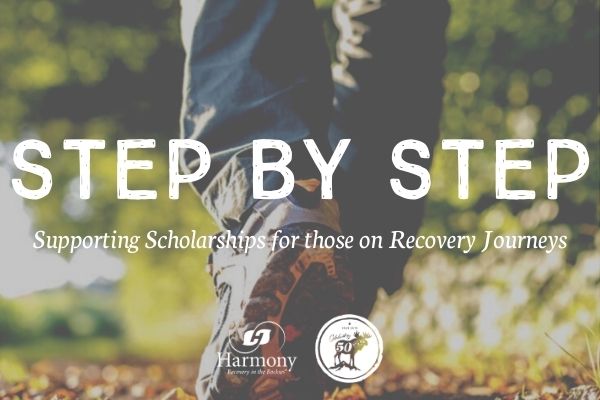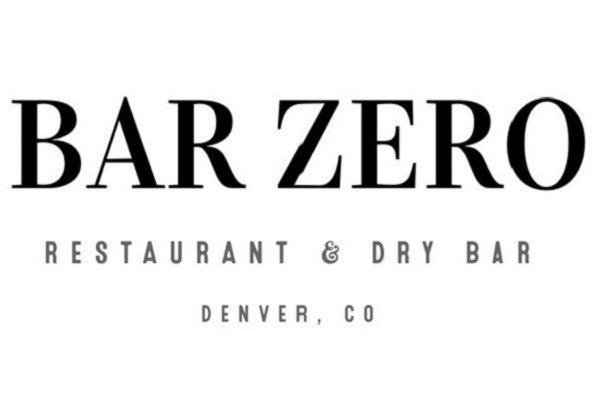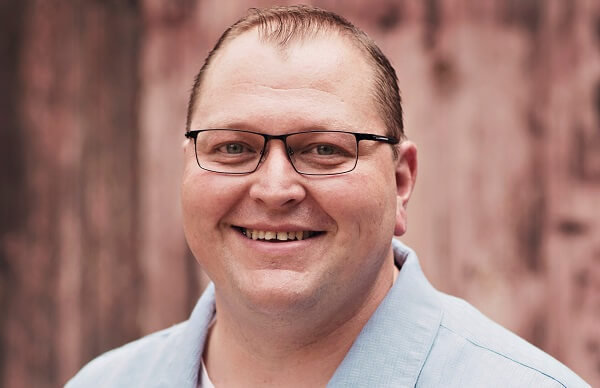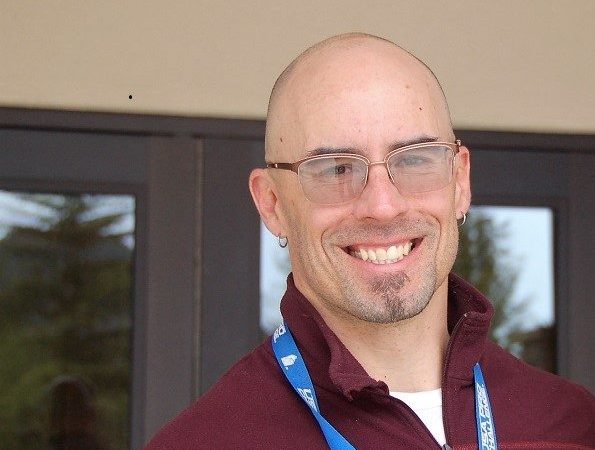The Recovery of Craig K.





Monday morning is a stressful time for many people. Anxiety about work or a depressed mood are not beneficial for anybody but they can be dangerous relapse triggers for people in recovery from addiction.
One way to deal with the Monday blues is to confront it head-on and make a virtue of it. Michael Arnold is the director of alumni and recovery support services at Harmony Foundation. She has found an engaging way to help people in recovery snap out of any dark moods they may be experiencing.
In May, Michael started a podcast called “Monday State of Mind” to give the recovery community a positive start into the workweek. Her sheer boundless enthusiasm alone will cheer up your Monday—or any other day for that matter. “I know the good that happens when I choose to be consciously aware of my state of mind,” explained the woman known as the “Hurricane of Happiness” in episode one. An alumna of Harmony herself, Michael continues to use the tools that were given to her while she was there as a client.
The fuel behind “Monday State of Mind” is her intense desire to “recover out loud” and in the process help others in the same situation. “ At Harmony, I get to help alumni implement the foundation they learned into their daily lives and help show them how to continue to take their power back by creating and living lives that are filled with continuous growth, meaningful connection, service, gratitude, and so much more.”
“Monday State of Mind” means to tackle thought-provoking questions that relate to recovery and how to apply the answers into the daily life of listeners. Michael aims to challenge listeners to ask themselves whether their state of mind is helping them catapult their week forward, or whether it is harming their week.
And when things don’t go your way, you just have to deal with it—appropriately. The week leading up to episode nine reminded Michael to keep it authentic when she realized that her request for listener questions had resulted in zero replies. In typical Michael Arnold fashion, she turned that Monday disappointment around and made it the topic of the episode that followed four episodes about humility after all.
At first, she got anxious and started blaming herself for this “failure.” Destructive, self-defeating thoughts showed up: “Why are you even doing this podcast?” and “No one is listening!” Then her ego chimed in: “Michael, you can’t admit that no one submitted questions. Just make some up!” But she felt fairly uneasy about making things up—she didn’t want to be a fraud. Instead, Michael called a friend who put her straight: “Michael, this is your opportunity to really show what you have been talking about. Your topics are happening to you. You have a great opportunity to be humble to the world and talk about it.”
Michael realized that “in order to change your state of mind you have to make tough decisions to grow. You have to be prepared to be a little uncomfortable.” She understood that she can’t expect listeners to be transparent, truthful, and vulnerable if she is not prepared to be so herself. After all, nobody is perfect and you can’t beat the Monday blues by faking it.
_____________________
Catch the podcast here: https://stage.harmonyfoundationinc.com/monday-state-of-mind/
Michael Arnold is the co-author of Drowning in Addiction: A Personal Guide to Recovery
Subscribe on any of these podcast platforms!
Apple Podcasts
Spotify
Google Podcasts
Stitcher

The current global coronavirus pandemic has presented serious challenges for people in recovery from addiction. Self-isolation, the threat of unemployment, no access to 12-Step meetings, and deep anxiety about an invisible disease spreading across the country—these are all possible relapse triggers.
While these risks should certainly not be underestimated, they could also be treated as an opportunity to strengthen recovery efforts.
“We are clearly facing a very difficult situation at the moment but just like everything else in life, this too shall pass,” says Michael Arnold, alumni community relations manager at Harmony. “I believe we now have a great opportunity to work on ourselves while also being of service and reaching out to help others.”
Connection is crucial for a sustained recovery and nothing disconnects like a lockdown in a pandemic—or does it? With stay-at-home orders across the US, meetings and counseling sessions for those who struggle with addiction have now largely moved online.
“With the help of modern technology, we have the chance to be more connected than ever before,” says Arnold. “The time COVID-19 is giving us at home is actually the greatest gift that our recovery can receive. If you are concerned about being isolated at home, pick up the phone, tablet, or use your computer to reach out to someone. When we choose to connect with people we are helping our own recovery just as much as we are helping the person on the other end of the link-up.”
These types of resources are incredibly valuable right now, say addiction professionals, mental health counselors, and individuals in recovery from substance use disorders. “The peer support group means so much to me,” says Harmony alumna, Spring B. “It’s essential for recovery especially in this period of time to stay connected. It’s super nice to see all the alumni. This group gives me an invisible link to people that understand and support me.”
If you are unsure how to proceed, Alcoholics Anonymous has provided a web page devoted to online options. Narcotics Anonymous offers similar information on its website.
“I don’t know what I would have done if I had been in this situation when we didn’t have access to virtual meetings,” a New Yorker who participates in Alcoholics Anonymous told CNBC. The 26-year-old woman from Brooklyn was 62 days sober at the time and planning to attend 90 meetings in her first 90 days of sobriety. She said a recent meeting she attended through video conferencing had over 1,000 participants.
“It’s so cool that technology enables us to attend meetings with friends in recovery that do not live anywhere close to us,” says Harmony’s Michael Arnold. “Even while we are physically isolated, we have the opportunity to be of great service to one another. When we come together, we can recover. I invite you to see this present moment of crisis as the best time to work on your recovery. Embrace this pause in life and fully engage in your journey of recovery.”
Harmony Foundation continues to serve clients during the COVID-19 (Coronavirus) outbreak and is taking new precautions to ensure staff and client safety. These include strict hand-washing protocols, heightened and ongoing disinfection of all areas at facilities, as well as updated admission assessments to consider previous travel, potential exposure, and health status. All new admissions will have additional medical screening upon campus arrival.

When I stopped drinking in April of 2005, I wondered if I would ever be able to have fun again outside of the bar scene. I feared I would never enjoy a live concert again, one of my greatest joys in life. As a single person, I had no idea how I’d ever go on a date again. “Who goes on a date and doesn’t drink?” For that matter, “Who goes out to eat at a nice restaurant (date or no date) and doesn’t have a glass of wine with their meal!?” (Did I mention the aperitif, the bottle of wine at dinner, and the after-dinner drinks that turned into shots towards the end of the evening?) I’d ruined all prospects of fun in my life! I determined I would always be, from that day forward; bored, boring, and surrounded by other bored and boring people. I was working in a bar. Most of my friends worked in bars and restaurants. Almost all my friends drank alcohol.
In those first few years as a non-drinker, I struggled to find activities that didn’t involve alcohol. However, more often than not, I participated in events that were drenched in alcohol and drug use and risked my new lifestyle and trajectory towards wellness. As a therapist, I would never have advised this to any of my clients. Why hang out in a candy shop if you are trying not to eat any added sugar? It seems the obvious choice would be to find a broccoli shop instead. But, broccoli shop? How bland, how boring, and how nonexistent! We needed a place that still felt like the candy shop without the candy! Still sweet, still vibrant, still FUN! Ok, enough with the metaphors. I wanted a nonalcoholic bar! A place for connection with other people making similar life decisions, a place without the risk but still social. I pondered that idea for a while, and then let it drop. It took several more years until that thought became a reality, in fact, it wasn’t until 2018 that I told this idea to a friend and she encouraged me not to ponder it anymore but to do it. Thank you, Allison! And, Bar Zero started to become a reality.
Once I started sharing this idea, I learned that so many others in recovery were longing for a space like this. I definitely was not the only one, and several people even mentioned calling it “SoBar,” which was our original name! I heard stories of friends in recovery having discussions about building a space just like this, a place for connection and community building for people in recovery. Many had the same questions I did in early recovery with the general theme being, “Will I ever have fun again?”
Just as this concept was forming and becoming something more than a shared idea, the sober curious movement started catching on. What timing! Now it’s not only those of us who consider ourselves “in recovery” looking for safe spaces, it’s also a new group of people looking for fun and for fewer hangovers yet still going out and enjoying a Friday night on the town! And, the press, the bar and restaurant industry and the general public are talking about not drinking! And, about drinking really tasty, alternative nonalcoholic drinks! They’re calling them “mocktails,” “zero-proof beverages,” “spirit-frees.” They’re being sold by Coca-Cola in a new line of nonalcoholic drinks called Bar None https://www.drinkbarnone.com/. They’re being made by distilleries, even! Non-alcoholic distilled beverages are made by Seedlip https://seedlipdrinks.com/us and starting to become more and more popular across the US after originating in the UK. And, the most fun part, local bartenders are starting to get excited and inspired to make high-end and delicious drinks without alcohol in them! Creativity and talent are showcased by the top bartenders in town and they are getting written up by local publications! https://coloradosun.com/2019/08/02/denver-sobriety-movement/
I’ve happily given interviews to the Denver Post (coming soon), Westword (twice!) https://www.westword.com/restaurants/sobar-could-soon-be-denvers-first-restaurant-for-and-by-the-sober-community-11105915 https://www.westword.com/restaurants/sobar-rebrands-as-bar-zero-with-plan-to-launch-catering-company-11408158, and Dining Out (also coming soon!) People are interested and getting involved with this new way of looking at drinking, or rather, not drinking and it is so thrilling to watch and experience!
Whatever they are calling these new drinks and establishments popping up across the country, I’m so excited to be a part of this shift, this movement! Without shame, without stigma, a lot more people are speaking clearly about what makes so much more sense, connection and a “life” without the booze yet still having a social outlet and space that includes delicious food and DRINKS!
Bar Zero is the space we’ve been craving. We are going to make it a reality. We need help doing that. Bar Zero is a 510 (c) 3 nonprofit organization and we have a long way to go before opening a brick and mortar restaurant. We are creating space for connection and community building. AND, also very excitingly, we are offering on the job training for people in early recovery from substance use problems. We know the “sober curious,” the “gray area drinkers,” those of us in recovery, and our communities at large need a place like this. Please help us bring this to Denver!
Our first Fundraiser is planned for September 11th, 2019 at Dazzle Jazz in downtown Denver. In partnership with Friends and Family, a Colorado nonprofit group for people who work in the hospitality industry, we are putting on a Zero-Proof Beverage Mix-Off! See the details on this amazing event on our website https://barzerodenver.org/ on the event page and join us for a unique and fun evening. Denver’s top mixologists will compete for a spot on the Bar Zero beverage menu. A panel of guest celebrity judges will taste and rate original eye-catching, mouthwatering nonalcoholic drink recipes. And you’ll get to be the judge too, by tasting a collection of awesome Zero-Proof Beverages and helping to pick the People’s Choice Award winner, all while enjoying new food menu creations and pairings by Chef Paul Rose.
Bar Zero’s Mission: Connection through food, intentional community, and professional collaboration for a continued life worth living in recovery.

by: Michael Rass
Sobriety is no longer just the earnest goal of recovering alcoholics. As of late, it has also become the holy grail of so-called “gray area” drinkers.
According to former social drinker Amanda Kudo that gray area is the “place where you’re not a super-casual, once-in-a-while drinker, but you’re also not a hit-rockbottom, time-to-get-help drinker, either. You’re just there, somewhere in the middle, drinking in a way that is still deemed socially acceptable if not socially necessary.”
Or as health coach Jolene Park put it in her TED talk, “from the outside looking in, my drinking did not look problematic, but from the inside looking out, I knew, the way I was drinking was a problem for me.” Many people like Kuda and Park say they never had a real drinking problem, but they had a problem with drinking.
One of those “gray area” drinkers was British expat Ruby Warrington, currently living in Brooklyn, who— according to the New York Times—”spent her early career quaffing gratis cocktails at industry events, only to regret the groggy mornings.”
“After moving to New York in 2012, Ms. Warrington tried 12-step programs briefly but decided that ‘Ruby, alcoholic’ was not the person she saw in the mirror,” wrote Alex Williams in the Times feature about a new sobriety trend spreading across the nation. “Three years ago she started Club Soda NYC, an event series for other ‘sober curious,’ as she termed them: young professionals who were ‘kind-of-just-a-little-bit-addicted-to-booze.’”
Being “sober curious” has caught on and Warrington wrote a whole book about this latest health fad. “For these New Abstainers, sobriety is a thing to be, yes, toasted over $15 artisanal mocktails at alcohol-free nights at chic bars around the country, or at ‘sober-curious’ yoga retreats, or early-morning dance parties for those with no need to sleep off the previous night’s bender,” wrote Williams.
But there is a serious side to avoiding alcohol use, of course. It is after all an addictive substance without any health benefits that physicians would acknowledge. And while the sober-curious vogue may well be short-lived, reducing or giving up alcohol consumption is certainly laudable since it comes with all kinds of health benefits.
When Jolene Park described her alcohol use as knowing “the way I was drinking was a problem for me,” she was actually paraphrasing the first diagnostic criterion of alcohol use disorder (AUD) in the of the Diagnostic and Statistical Manual of Mental Disorders (DSM-5), which reads: “Alcohol is often taken in larger amounts or over a longer period than was intended.” And when she said in the same TED talk that she had no trouble stopping but couldn’t “stay stopped,” she was paraphrasing the second AUD criterion in the DSM-5. Two criteria (out of eleven) indicate a mild alcohol use disorder.
Park probably wasn’t aware of the DSM-5 criteria at the time but she read the warning signs correctly and realized that she was “kind-of-just-a-little-bit-addicted-to-booze.” She understood that her alcohol use could escalate further and made the right decision. She embraced sobriety.
She also realized that her alcohol use was a coping mechanism for her anxiety issues and designed a new coping strategy for herself based on connecting with nature and other people, exercise, and meditation. Park now shares this healthy approach to life with other people.
Amanda Kuda also realized that she needed to drink in order to relax. “But there was a bigger part of me that wanted to feel happy, joyful, vibrant, inspired, energized, motivated, fulfilled. Once I realized that alcohol was not only failing to contribute to those feelings, but was actually dragging me further and further away from them, I no longer wanted to drink.” Neither Park, Warrington, or Kuda sought detox or residential addiction treatment for their alcohol problem, and only Warrington briefly tried a 12step program. This low level of care for a mild or moderate alcohol use disorder may not be the right choice in all cases, though. Some patients might require an intensive outpatient program or even partial hospitalization. Only a careful assessment of the patient’s individual needs can determine the appropriate level of care.
Although none of the three “gray-drinking” women made use of a treatment program, they nevertheless realized a core principle of recovery. Stop using and change your life! Real recovery goes far beyond giving up substance misuse. It is a life-changing journey to long-term wellness that should make you feel happy, joyful, and inspired.
IF YOU OR A LOVED ONE IS STRUGGLING WITH SUBSTANCE USE DISORDER, OR YOU HAVE QUESTIONS ABOUT OUR PROGRAMS, CALL HARMONY TODAY AT 970.432.8075 TO GET THE HELP NEEDED AS SOON AS POSSIBLE

By Michael Rass
Sink or swim are the metaphorical options for people with addiction. Andrea Carr, Michael Arnold, and Scott Leeper teamed up for a personal guide to recovery in Drowning in Addiction, sharing their first-hand experience with substance use disorder (SUD) and its devastating impact on families. Continue reading “Drowning in Addiction: A Personal Guide to Recovery”

Addiction is a family disease. The Recovery Book advises family members of people in recovery that “Everyone in your family, as well as other people in your lives, has been affected by addiction in some way. Now you all need to work on getting your lives back to some kind of normal.”
Michael Arnold is a recovering alcoholic who now works as an alumni relations manager at the Harmony Foundation. In a recent Facebook Live with her twin sister, Michael and Casey talked about the impact Michael’s addiction and recovery had on their relationship. Both siblings demonstrated how important clear and honest communication is for the family dynamic.
Michael talked about the need to share with “brutal honesty what addiction can do to your family.” Casey talked about how hard it was for her to watch Michael decline in active addiction, realizing there was nothing she could do, that Michael had to save herself.
Michael recalls doing things to her family that “just weren’t nice.” Casey remembers all too well. Seven years ago Michael helped to put her twin sister briefly in jail—just to hurt her. Michael was in such a bad place that to hurt her sister made her feel better.
“I never thought I could be close with Michael again, never thought I could trust her again,” Casey said. But change can happen. Recovery can work miracles. “Michael has changed. She is not the person she was seven years ago,” Casey said. “She is not that selfish person that put me in jail. She’s working very hard at it every day.”
For desperate family members the trick is to be patient and supportive. “Don’t hammer people in recovery about all the mistakes they made in active addiction” all the time. “Show your love,” Casey said. “You need to have grace and patience with them. As family members you have to give them space to recover, the harder you are on them the worse it’s going to be.”
Appealing to people in the audience who have family members with addiction, Casey said, “You have to choose either to be there and support them or walk away. You can’t live in the middle and hold their past wrongdoings against them—that doesn’t help them recover. I have nothing but complete love for Michael now and I’m just so proud of her. It’s been a journey for both of us.”
Michael shared her side of that journey. Only “when I went through rehab did I get the tools to tell myself everyday to have that patience, to be so grateful that I’m sober. I have to know that my family will trust me; that they should realize that I’m a changed person but time is not on my side.”
It’s important to remember that recovery is a process. “I thought simply that Casey and I would be okay now that I’m sober. The relationship would be fine but it wasn’t,” Michael remembers. “Casey gave me that space for about a year to recover, but then she said ‘we need to talk about what happened’ so that we can move forward.”
Casey had to tell Michael what she had done to her and “she took it hard. I love you, I forgive you, but you have to earn the trust back.” That shook Michael, “but now our relationship is even stronger because you have to be able to open up about these things or they will simply fester.”
Making amends is an ongoing process for Michael now and Casey knows it. “Michael is ruthless and relentless about her recovery—she has even written a book about it. She is working hard every single day and that is all you can ask.”

I was 29 years old when I went to treatment. It was a nudge from a Judge that drove me to my first introduction to Harmony Foundation when I called asking for help. At that time I couldn’t imagine my life without alcohol, but I did know that I didn’t want to be miserable anymore. Alcohol may have taken away the bad feelings, but it certainly did not take away the misery, it was an unwanted houseguest that had moved in and was planning to stay.
I will never forget that first call. I was scared, uncertain and feeling hopeless. Sharon, a former Union Boilermaker, originally from Pittsburgh, was my lifeline to my new life in recovery. Sharon was kind and understanding, she eliminated barriers, was honest, and insightful. I had tried different feeble attempts of getting sober that all involved managing and moderation. When it was all said and done, Sharon was quick to point out that everything I tried wasn’t working and said, “Try this!” She added that I was allowed to try things once in my life and never have to try them again if I didn’t like it. So, I tried, came to Harmony and by the grace of my God of my understanding, I haven’t found it necessary to pick up a drink or a drug since that phone call.
Whether you’re a friend, family member or just desperately in despair looking for help, making that first call can be overwhelming. Many people perceive addiction treatment likened to Jack Nicholson in “One Flew over the Cuckoo’s Nest.” In truth, most addiction treatment is not straightjackets, lockdown facilities and Nurse Ratchet’s.
In fact, good addiction treatment and working with someone in admissions is built on compassion, empathy, strength and guidance. As a person in recovery who went through the admissions process, I can say that the first call makes all the difference.
What can you expect when calling for help? First and foremost you should expect to be treated with dignity and respect. Someone who is willing to answer every question you have. You should expect to be valued enough as an individual that your questions will be answered honestly even if the Admission Staff knows the truthful answer may not be what you want to hear. Remember, you are making a call to save your life not giving someone on the other end an opportunity to close a deal. Insurance does not pay for flights, waving of fees and deductible only means that the revenue has to be made up from somewhere or someone else, that someone else could be you. If services provided and allowable items are different on the phone than the programs website, you have a right and self-responsibility to ask why the difference without being challenged. One of the most critical elements to a successful treatment experience is honesty. This critical element will be missing if the admission process revolves around any kind of dishonesty. You should also expect to work with an organization that will inform you if they cannot meet your needs and they will provide you with direction to programs they have a collaborative relationship with to best meet your needs.
Today, I am an Admissions Manager and since my first and only admission all those years ago, I have been given the good fortune to not just experience the admission process once, or twice, or even 100 times but thousands of times. I remind myself on every call how I was treated on that first call with Sharon, and I am committed daily to respond the way she did. People calling, no matter what the motivator, just want to be heard without judgment and respected. Admissions staff is the first impression of the organization they establish the trust necessary for the individual to begin a process of a willingness to change. Being dishonest, pushy and unclear about expectations sets everyone up for failure.
Each time I work with an individual or family, it is a privilege to be the resource that helps them begin their new journey of sobriety. No two admissions are the same. I honor and respect the clients allowing them to experience their own journey with the admissions process the same as I was.
So as you consider treatment and you inquire about what program is the best fit for you. Remember that that person on the other line may have the one thing you need to help you begin again. One thing I can say that is true for me, every time I try anything that involves the admission process, I learn from it, I grow from it, and most of all I love it.

by Walt Hester
I came into recovery, like so many, with extremely low self-esteem. The joke in recovery is that I didn’t think much of myself, but I was all I thought of. While I entered my 12-step fellowship immediately, it took me years to realize that one good habit I brought with me would serve me and my recovery for years to come.
The founder of The Phoenix, Scott Strode, states that something happens when we partake in athletic endeavors early in recovery. As we begin achieving goals, our self-esteem improves. As this happens, our identity shifts. We are no longer defined by the substance or disease that nearly killed us. We are no longer addicts. We become people in recovery; Survivors.
This is not an automatic event, not a switch that is thrown. This attitude takes time. It also takes more than movement. Exercise is not a replacement for the 12 Steps or therapy. Exercise is an adjunct, another tool in our recover toolbox. This, as it turns out, is something with which most addicts, in recovery or not, can identify; if one is good, more is better.
Exercise can by meditative. When one is hanging off of a rock face, forearms pumped, grip wavering, all one thinks of is the next handhold. The same is true with swimming or cycling or running. Just get through the next movement. This keeps us in the here and now in ways that we had not been capable of in the past. We don’t worry about the mistakes of the past or the mysteries of the future.
Similarly, movement can be a form of prayer. Perhaps there is an issue, a problem or challenge that I will take onto the bike during a long ride or even a walk with my family. The movement seems to lubricate those parts of my mind that help me solve the issue. I could explain the science, but then you would click on to something, anything, else. Just trust me on this.
Movement, exercise, athletics, can also promote fellowship. Many addicts, myself included, isolated in the latter stages of the disease. Shame and resentment drove me away from family and friends. Like the 12-Step programs, finding groups of like-minded people to share this experience helps us to break out of that isolation. We build friendships instead of walls. We relearn how to be a part of a community, instead of a part from. This promotes that sense of belonging that we craved but seemed incapable of before. It also begins to promote accountability. Like exercise, if one feels obligated to show up, one is more likely to follow through.
Exercise improves the bodies and brains of people recovering from addiction. It is also so much more. Our minds clear and our spirits are lifted as we lift more, run faster and climb higher. We feel better about ourselves as we encourage others to reach their goals. It’s another recovery tool. We can never have too much of that.